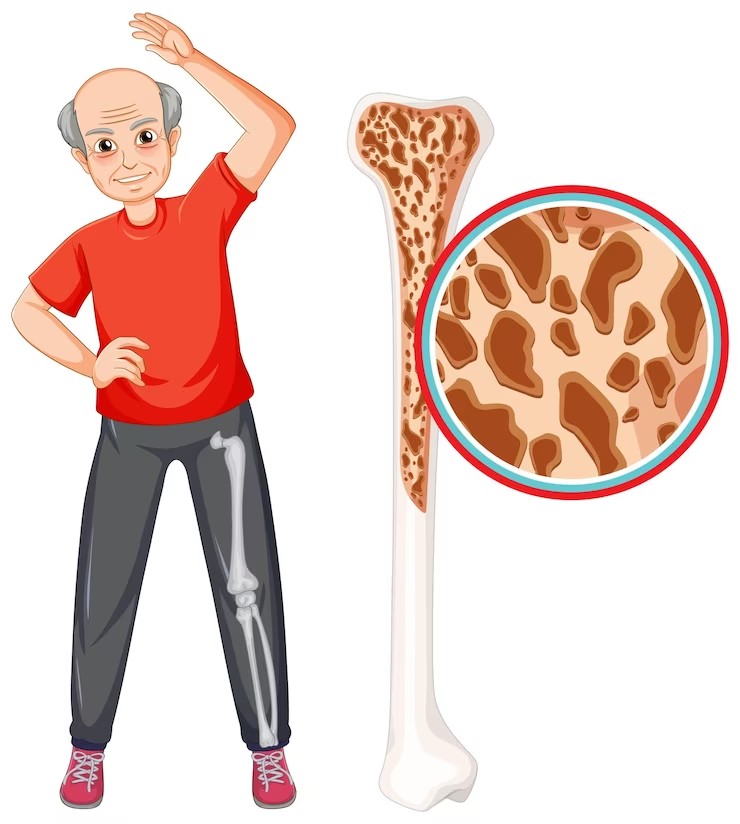Osteoporosis is a common bone disease characterized by low bone mass and deterioration of bone tissue, leading to an increased risk of fractures. In South Africa, where the population is aging and the prevalence of osteoporosis is on the rise, it is essential to understand this condition and take proactive measures to prevent its onset. By educating ourselves and adopting healthy lifestyle habits, we can reduce the risk of osteoporosis and promote better bone health. Let’s explore the key aspects of understanding and preventing osteoporosis in South Africa.
Understanding Osteoporosis:
Osteoporosis is often referred to as a “silent disease” because it progresses without symptoms until a fracture occurs. It primarily affects older individuals, particularly postmenopausal women, but it can also occur in men and younger individuals. Osteoporosis weakens bones and makes them more susceptible to fractures, especially in areas such as the spine, hips, and wrists.
Preventing Osteoporosis:
- Adequate Calcium Intake: Calcium is crucial for maintaining strong bones. Ensure that your diet includes calcium-rich foods such as dairy products (milk, cheese, yogurt), leafy green vegetables, fortified plant-based milk alternatives, and calcium-fortified foods. If necessary, consult a healthcare professional to determine if calcium supplements are needed.
- Vitamin D: Vitamin D helps the body absorb calcium and supports bone health. South Africa is blessed with ample sunshine, which is an excellent source of vitamin D. Spend time outdoors, especially in the early morning or late afternoon, to allow your body to produce vitamin D naturally. If sunlight exposure is limited, consider vitamin D supplements as advised by a healthcare professional.
- Regular Exercise: Engage in weight-bearing and muscle-strengthening exercises regularly. Weight-bearing exercises, such as walking, jogging, dancing, and hiking, help improve bone density. Additionally, resistance exercises like lifting weights or using resistance bands strengthen muscles and promote better bone health. Consult with a healthcare professional to determine suitable exercises based on your health condition.
- Balanced Diet: Adopt a balanced diet rich in fruits, vegetables, whole grains, lean proteins, and healthy fats. A well-rounded diet provides essential nutrients for overall health, including bone health.
- Limit Alcohol and Tobacco Consumption: Excessive alcohol consumption and smoking can weaken bones and increase the risk of osteoporosis. If you drink alcohol, do so in moderation, and if you smoke, consider quitting or seeking professional help to quit.
- Maintain a Healthy Body Weight: Being underweight can increase the risk of osteoporosis. Maintain a healthy body weight through a balanced diet and regular exercise. If you are overweight, strive to reach a healthy weight gradually, as excessive weight can also strain your bones.
- Fall Prevention: Falls can lead to fractures, especially for individuals with weakened bones. Take precautions to prevent falls by keeping your living space well-lit, removing tripping hazards, installing handrails on stairs, and using nonslip mats in bathrooms.
- Regular Bone Density Testing: It is advisable, particularly for postmenopausal women and older individuals, to undergo bone density testing to assess their bone health. This can help detect osteoporosis or assess the risk of developing it. Discuss with a healthcare professional when and how often you should have bone density testing.
- Hormone Replacement Therapy (HRT): For postmenopausal women, hormone replacement therapy may be considered to help preserve bone density. However, this is a decision that should be made in consultation with a healthcare professional, weighing the benefits and potential risks.
- Consult a Healthcare Professional: If you have concerns about osteoporosis or are at higher risk due to family history or other factors, consult a healthcare professional. They can provide personalized guidance, evaluate your risk factors, and recommend appropriate preventive measures or treatments.
By taking proactive steps to understand and prevent osteoporosis, we can reduce the impact of this disease and promote better bone health in South Africa. It is never too early or too late to start adopting healthy lifestyle habits that support strong and resilient bones. Prioritize bone health, make informed choices, and consult with healthcare professionals for guidance on maintaining strong bones throughout your life.










